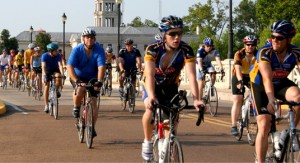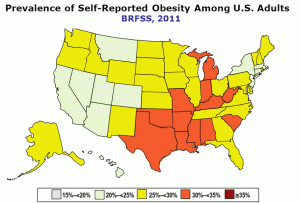Walk Score has published its list of the Most Bikeable Large U.S. cities, based on a methodology that includes infrastructure, hills, connectivity and “mode share”—meaning how many fellow bikers are on the road.
No surprises here. You know who wins this: Portland, San Francisco, Denver. But dig a little deeper into the site’s list of over 120 U.S. cities and a perplexing regional pattern emerges. It appears the South has no truck with bicyclists.
The top scorers on the full list (which includes large and smaller metro areas) are scattered over the East (Cambridge, MA, had the highest score), the Midwest (Iowa City, Minneapolis) and the West (Davis, Berkeley, Eugene ). And the bottom of the list is dominated by the South. In fact, with a handful of exceptions, the bottom 30 cities are all southern.
Is this good data? Hard to say. There are few mysterious no-shows on the list. (Where is Baltimore? Schenectady? Jersey City?) And other lists show some variation. (CNN had Austin, TX, on its list of top eight biking cities; Bicycling ranked it 11th; Walk Score ranks poor Austin at a lowly 90th.)
Still, we’re going to go with the preponderance of data. When you have so many cities from one region on the bottom, you should at least think about what it could mean. Also, it gives us a chance to speculate about why the South could be so inhospitable to bikers.
First, to score high on these lists, you need to invest in infrastructure. Second, you need to want to exercise, and Southern states rank high on lists of obesity. (We’re not saying this; the CDC is.)
Third, the weather: no one likes to bike in a sauna. (Although, to be fair, this is a lame excuse: the various lists repeatedly cite Madison, Minneapolis, multiple cities in Arizona and Rochester, NY, which also have bike-unfriendly weather.)
Or maybe it’s another cultural stereotype we’ve missed. Is it because Southern women don’t like to sweat? Is it because Southern men feel less manly in Spandex?
Or maybe it’s just a question of timing. Before anyone in the North gets too sanctimonious, it’s worth remembering that the explosion of bike lanes and general acceptance is new everywhere in the country. (“Across the U.S. bicycle commuting grew 47% between 2000 and 2011,” says Walk Score. And even a supposedly bike-friendly city like New York isn’t completely on board: in the debate over the freshly inaugurated bike-sharing program, some residents compared DOT officials to the Taliban.)
So we’re giving the south a temporary pass. But really, y’all. Time to get on board.











